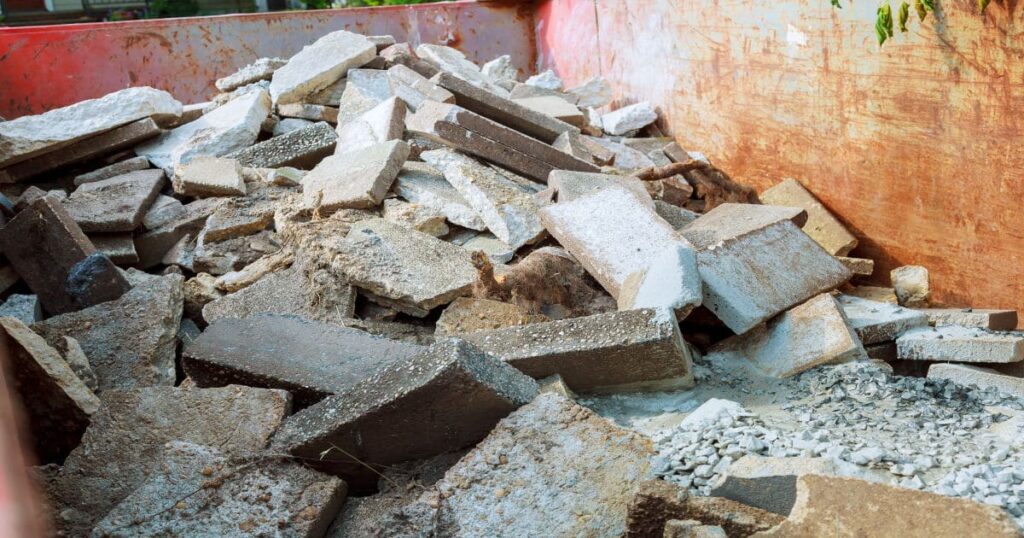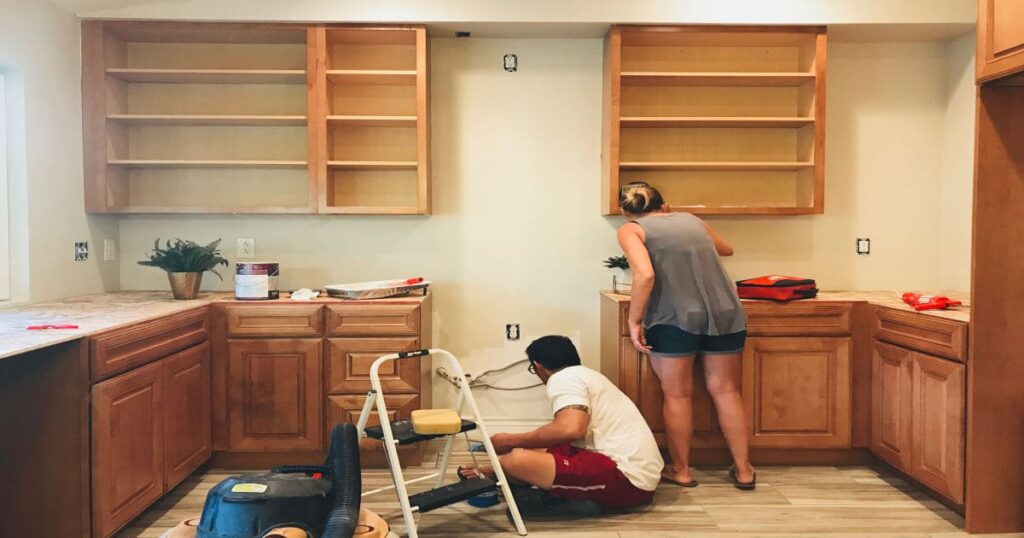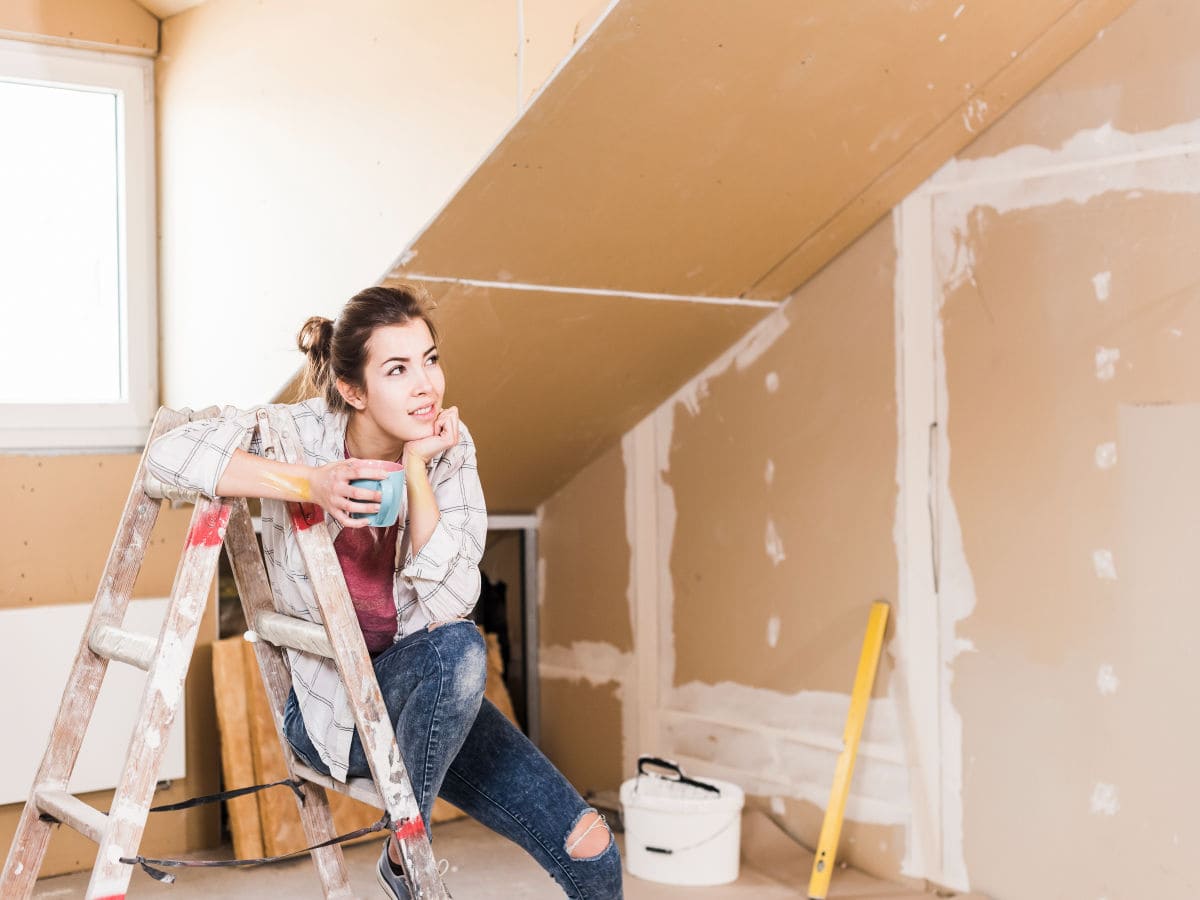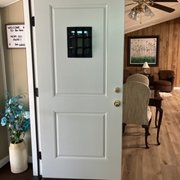The home renovation journey is like embarking on an adventure where every decision shapes the landscape of your living space. It represents homeowners’ aspirations, reflecting their vision of the ideal abode.
However, the road to a dream home is often paved with potential pitfalls, and these missteps can be damaging to your budget and peace of mind. From initial planning to the final touches, understanding and sidestepping these pitfalls can help in achieving the home you’ve always desired.
Common Home Renovation Mistakes
Lack of Proper Planning
Whether minor or major, home renovation projects demand meticulous planning to ensure success. Two critical aspects often overlooked are:
Underestimating The Scope of the Project
One of the most prevalent home renovation mistakes homeowners make is underestimating the complexity and scale of their renovation endeavors. This can lead to several issues, such as unexpected delays, increased costs, and frustration.
To avoid this pitfall, thoroughly assess the project’s requirements and potential challenges before commencing any work. Consider consulting with experts, like architects or contractors, to understand the project better.
Failing to Set a Realistic Budget
Budgeting is important in any renovation project, yet many overlook this vital step. A common mistake is setting an unrealistic or inadequate budget, which can result in unfinished work, compromised quality, or the need for costly mid-project adjustments. To circumvent this issue, homeowners should conduct comprehensive research to estimate costs, including materials, labor, permits, and unforeseen contingencies. Building a buffer into the budget for unexpected expenses can also be a prudent strategy, ensuring that the project remains on track financially.
Ignoring Permits and Regulations
Homeowners often overlook obtaining necessary permits and adhering to building regulations during a renovation project. This negligence can have serious repercussions, as outlined below:
Importance of Obtaining the Necessary Permits
Obtaining the required permits is paramount in ensuring your renovation project is legal and safe. Permits testify to the project’s compliance with local building codes and regulations to safeguard your home and the community. They ensure the work meets structural and safety standards, preventing potential hazards. Also, permits often require inspections at key project stages, ensuring the work is carried out correctly. Failing to obtain permits can lead to legal complications, delays, and even the requirement to undo or modify completed work, which can be both costly and frustrating.
Consequences of Not Following Regulations
Ignoring building regulations can result in a range of adverse consequences. Firstly, it can pose serious safety risks, as unpermitted work may not meet essential structural or electrical requirements. In the event of accidents or damage, insurance companies may refuse to cover unpermitted renovations, leaving homeowners with significant financial burdens. Furthermore, if you ever decide to sell your home, unpermitted work can complicate the sale process and reduce the property’s value. Local authorities may issue fines, stop-work orders, or even require removing non-compliant modifications, causing substantial financial setbacks. Ignoring permits and regulations can jeopardize your investment and the well-being of those residing in or around your home.

Hiring the Wrong Contractors
Risks of Hiring Inexperienced or Unreliable Contractors
Quality Concerns: Inexperienced contractors may lack the skills and expertise to complete the work to industry standards, leading to subpar results.
Delays and Cost Overruns: Unreliable contractors may fail to meet deadlines or provide accurate cost estimates, causing delays and unexpected expenses.
Legal and Liability Issues: Contractors without proper credentials or insurance can expose homeowners to legal liabilities in case of accidents or property damage.
Shoddy Workmanship: Unreliable contractors may cut corners, use low-quality materials, or skip necessary inspections, compromising the structural integrity of your home.
Tips for Selecting Reputable Professionals
Research: Conduct thorough research, read reviews, and ask for recommendations from friends, family, or neighbors who have undergone similar renovations.
Check Credentials: Verify that contractors are licensed, insured, and bonded in your locality. This ensures they meet minimum professional standards and have adequate coverage.
Interview Multiple Contractors: Don’t settle for the first contractor you find. Interview several candidates, asking about their experience, portfolio, and approach to the project.
Request References: Have them list down references from previous clients. Inquire about their experiences with the contractor.
Obtain Detailed Quotes: Request detailed written quotes from contractors outlining the scope of work, materials, labor costs, and a clear timeline.
Communicate Expectations: Communicate your expectations, budget constraints, and project timeline to potential contractors to gauge their understanding and responsiveness.
Contractual Agreement: Ensure you have a comprehensive written contract, including payment schedules, warranties, and dispute resolution procedures.
Poor Material and Design Choices
Impact of Choosing Low-Quality Materials
Durability Issues: Low-quality materials are often less durable and prone to wear and tear, leading to premature replacements and additional expenses.
Aesthetics and Value: Inferior materials may result in a less appealing final look, potentially diminishing your home’s aesthetic and resale values.
Maintenance Costs: Cheap materials may require frequent maintenance and repairs, leading to ongoing expenses.
Safety Concerns: In some cases, low-quality materials may not meet safety standards, posing hazards to occupants.
Environmental Impact: Subpar materials may have a higher environmental impact, contributing to waste and resource depletion.
Importance of a Well-Thought-Out Design
Functionality: Proper design ensures that the renovated space is functional, meeting your specific needs and lifestyle.
Space Utilization: A thoughtful design optimizes available space, making the most of every square foot.
Aesthetic Appeal: A well-designed space enhances the visual appeal of your home, creating a harmonious and pleasing environment.
Efficiency: A good design can improve energy efficiency and reduce utility costs through smart placement of windows, insulation, and more.
Resale Value: A thoughtfully designed renovation can increase the resale value of your home, making it a wise investment for the future.
Neglecting Safety Precautions
The Need for Safety Measures During Renovation
Injury Prevention: Renovation sites can be hazardous, with potential dangers such as sharp tools, electrical wiring, and heavy machinery. Safety measures help prevent accidents and injuries to both you and your contractors.
Health Protection: Renovation activities can generate dust, fumes, and hazardous materials like lead paint or asbestos. Proper safety precautions protect against respiratory issues and exposure to harmful substances.
Structural Integrity: Safety measures ensure that the structural integrity of your home is maintained. For instance, reinforcing load-bearing structures during renovations is crucial to prevent collapses.
Compliance with Regulations: Many regions have specific safety regulations for construction and renovation work. Adhering to these rules is not only a requirement but also ensures the safety of those involved.
Mention Common Safety Oversights
Lack of Personal Protective Equipment: Failure to provide or use PPE, such as hard hats, safety glasses, gloves, and masks, can expose workers to unnecessary risks.
Insufficient Ventilation: Inadequate ventilation during tasks like painting or using solvents can lead to exposure to harmful fumes.
Ignoring Electrical Hazards: Working with electrical systems without shutting off power or using proper precautions can lead to electrocution.
Unsecured Tools and Materials: Leaving tools and materials scattered around can result in tripping hazards.
Poor Communication: Ineffective communication between contractors and homeowners can lead to misunderstandings about safety protocols.

Not Considering Future Needs
Importance of Planning for Future Changes
Changing Lifestyles: Your family’s needs and lifestyle may evolve. Adequate planning can ensure that your home remains accommodating as your family grows or changes.
Market Trends: Renovations considering future market trends and buyer preferences can enhance your home’s resale value.
Cost Efficiency: Making changes during renovation is typically more cost-effective than undertaking separate projects later.
Aging in Place: If you plan to stay home as you age, making it more accessible now can save you from the expense of retrofitting later.
How to Make Renovations More Adaptable:
Universal Design: Incorporate universal design principles, such as wider doorways and lever-style handles, to make your home more accessible for people of all ages and abilities.
Flexible Spaces: Design rooms that can serve multiple purposes, like a home office that can also be a guest bedroom, to accommodate changing needs.
Energy Efficiency: Invest in energy-efficient upgrades like insulation, efficient windows, and solar panels to reduce long-term energy costs and environmental impact.
Expandable Infrastructure: If possible, plan for expandable infrastructure, such as plumbing or electrical systems, to make future additions or upgrades easier.
Storage Solutions: Ensure your renovation includes ample storage space, which can be adapted for various uses as your needs change.
How to Avoid These Mistakes
Thorough Planning and Budgeting
Detailed plans and budgets are the bedrock of a successful home renovation project. They provide clarity and structure to the process, helping homeowners avoid costly mistakes and unexpected issues. To create a renovation plan, start by defining your goals and priorities, assessing the scope of work, and setting a realistic budget. Consult with professionals if necessary, gather quotes from contractors, and create a timeline. Be sure to include a contingency fund for unforeseen expenses, and revisit your plan regularly to stay on track. Thorough planning and budgeting prevent common renovation pitfalls and ensure your project aligns with your vision and resources.
Research and Compliance
Researching permits and regulations in your area is crucial to ensure a smooth and legally compliant renovation project. To begin, contact your local government offices, such as your municipal or county authorities, to determine the specific permits needed for your project. They can provide detailed information on the application process, associated fees, and required documentation. Many areas also provide online resources on official government websites, including permit guidelines and downloadable application forms. It’s imperative to thoroughly understand local zoning regulations, building codes, and any historic preservation requirements that may apply to your property. To stay compliant throughout the project, obtain all necessary permits before starting work, maintain clear documentation, communicate effectively with contractors and local authorities, and promptly address any issues or changes that arise during the renovation to ensure a successful and trouble-free project.
Choosing the Right Contractors
Selecting reputable contractors is fundamental to a successful home renovation. To make an informed choice, conduct thorough research, including reading reviews, seeking recommendations, and checking references. Interview multiple contractors, assessing their experience, credentials, and communication skills. Request detailed quotes outlining the scope of work, costs, and timelines. Prioritize contractors who are licensed, insured, and bonded. Clear communication and a comprehensive written contract are key to establishing expectations and resolving any issues arising during the renovation. By diligently selecting the right professionals, you can significantly reduce the risks associated with hiring inexperienced or unreliable contractors and ensure the quality and efficiency of your project.

Selecting Quality Materials and Designs
Selecting durable materials is vital for a successful renovation. To choose durable materials, start by researching the options available for your specific project and assess their durability ratings. Materials like hardwood, high-quality ceramics, and natural stone often offer superior longevity. Consider maintenance requirements, read reviews, and seek recommendations from professionals or acquaintances who have experience with similar projects. Check warranties and expected lifespans to ensure you’re investing in materials that last a long time. When working with a designer or architect, effective communication is key. Clearly articulate your vision, preferences, and budget from the outset. Collaborate closely, ask questions, and don’t hesitate to provide feedback and ensure the final design aligns with your goals and expectations. This results in a great renovation that stands up to the rigors of daily life.
Prioritizing Safety
Safety should be paramount during any renovation project to protect yourself and your family. Implement essential safety measures. Enforce safe work practices, minimize accidents, and regularly inspect the work area for hazards. When dealing with electrical work, always turn off the power to the relevant areas and follow proper safety procedures. Maintain open communication with contractors and emphasize the importance of safety throughout the project. By prioritizing safety, you reduce the risk of accidents and injuries and ensure a smooth and secure renovation process.
Future-Proofing Your Renovation
Future-proofing your renovation ensures that your home remains adaptable to changing needs and circumstances. To achieve this, consider universal design principles, making spaces accessible. Invest in energy-efficient upgrades to reduce long-term utility costs while minimizing your environmental footprint. Embrace smart home technology that can be easily updated as new innovations emerge and incorporate ample storage and open floor plans to accommodate evolving lifestyles. By thinking ahead and implementing these strategies, your renovation will not only meet your current desires but also remain a valuable and functional asset well into the future, enhancing the longevity and utility of your home.
Innovating Your Home’s Tomorrow
Your home renovation is not just about the present; it’s an investment in the future. By incorporating universal design, energy efficiency, smart technology, and versatile spaces, you’re creating a beautiful and functional living environment today and future-proofing it for what lies ahead. Whether accommodating a growing family, embracing new technologies, or simply evolving with your changing tastes, these thoughtful strategies ensure that your home remains a valuable and adaptable asset. So, as you embark on your renovation journey, remember that you’re not just improving your home; you’re innovating it for tomorrow.

Frequently Asked Questions
What are Some Common Mistakes People Make During Home Renovations?
Common home renovation mistakes include inadequate planning, ignoring permits and regulations, hiring inexperienced contractors, choosing low-quality materials, neglecting safety precautions, and failing to consider future needs.
How Can I Avoid Underestimating the Scope of My Renovation Project?
To avoid underestimating the scope of your project, thoroughly assess your needs and consult with professionals like architects or contractors. Create a detailed plan, set a realistic budget, and consider potential challenges and contingencies.
What are the Consequences of Not Obtaining the Necessary Permits for a Renovation?
Failing to obtain permits can result in legal complications, delays, increased costs, safety hazards, insurance issues, and difficulties in selling your home in the future.
How Can I Ensure that I Hire Reliable Contractors for my Renovation Project?
To hire reliable contractors, conduct thorough research, read reviews, seek recommendations, interview multiple candidates, request detailed quotes, verify licenses and insurance, and establish clear communication and a comprehensive written contract.
What are Some Ways to Select Durable Materials for a Renovation Project?
To choose durable materials, research options, consider maintenance requirements, read reviews, seek recommendations, check warranties and expected lifespans, and evaluate the long-term value of the materials.
How Can I Prioritize Safety During My Home Renovation?
Prioritize safety by ensuring that everyone on the job site wears appropriate.
References
Avoid These Common Home Renovation Mistakes
Home Renovation Without Aggravation
10 Remodeling Mistakes That Will Reduce Your Home’s Marketability
Safety Tips for Before, During and After the Renovation Process



























